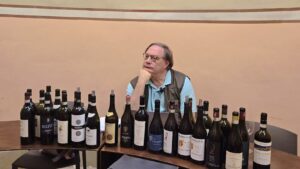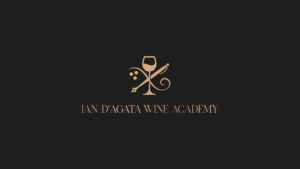In November 2024, at the German Wine Tasting Fair held in Shanghai, I had the pleasure of meeting Jens, the owner of Germany’s Werther Windisch winery. Through our conversations, I developed a deep interest in the winery’s unique terroir and winemaking philosophy. Subsequently, we conducted an in-depth interview via email, with all the content for this article originating from our email exchanges. Clearly, I hope to visit the Rheinhessen this year (just as I was in Franken last year visiting wineries there) and the Windisch winery. I also tasted a number of the winery’s wines coming away suitably impressed.

Winery History and Culture
The history of Werther Windisch winery spans centuries. The family has been involved in winemaking for generations, moving from Hungary and Slovenia during wartime to settle in regions suitable for viticulture. The current winery was purchased by Jens Windisch’s great-great-grandfather, with its oldest building dating back to around 1850. The name “Werther-Windisch” reflects the union of two families. In the previous generation, the Windisch family (from Jens’s father’s side) and the Werther family (from his mother’s side) came together, creating this unique name and winery. In 2010, Jens Windisch officially joined the family business and successfully transformed the traditional family winery into a modern estate. A graduate in winemaking from Germany’s prestigious Geisenheim University, Jens also gained valuable international experience working at a winery in New Zealand. Once back in the family fold, through his efforts, Werther-Windisch winery achieved organic and vegan certification after three years of rigorous verification.
Vineyards and Terroirs
The vineyards of Werther-Windisch winery span fifteen hectares, while the total estate covers fifty hectares. With an average vine age of twenty years, the winery benefits from reasonably deep-rooted vines that significantly contribute to the quality of its wines.

Situated in central Germany, the winery is located forty kilometers from Frankfurt, fifteen kilometers south of Mainz, and approximately three kilometers from the Rhine River. Nestled in the hinterlands of the Rheinhessen, the vineyards reach an altitude of 350 meters above sea level, making them some of the highest in the region. The western winds bring a cool climate, and the pure limestone soils provide the wines with elegance, a full body, and low alcohol levels (11%-12%). The winery primarily cultivates Riesling, a grape variety that perfectly aligns with the local soil and microclimate. This choice also reflects the winemaker’s dedication to traditional craftsmanship. Werther-Windisch employs organic farming practices and has achieved organic certification. While this approach results in lower yields, it is also believed to significantly enhance the quality of the grapes.
The Schloßberg (Scholssberg) vineyard is located in one of the highest areas of Rheinhessen, benefiting from an open, broad terrain that allows cool westerly winds to flow through the vineyard. This results in a cooler microclimate with significant diurnal temperature variations, which slows grape ripening, preserves good acidity, and enhances aromatic complexity. The soil in Schloßberg is predominantly limestone (Kalkstein) with small amounts of sand, offering excellent drainage. This encourages deep root growth, enabling vines to absorb minerals effectively, which imparts a pronounced minerality and notable structural tension to the wines.

By contrast, the Lieth vineyard, also in Rheinhessen, lies at a slightly lower elevation than the Schloßberg and features a more sheltered terrain. Its milder climate and smaller diurnal temperature range create a more balanced and steady grape ripening process. The soil in Lieth is also limestone-based but with a higher concentration of it, making it denser and capable of retaining more water. This is particularly beneficial during dry seasons, ensuring healthy vine growth. The combination of a stable microclimate and higher limestone content allows Lieth wines to showcase refined complexity, softer minerality, and a more elegant and nuanced flavor profiles.
Winemaking Philosophy and Techniques
Werther-Windisch winery embodies a harmonious blend of traditional and modern approaches, but uses modern techniques sparingly, preferring to rely heavily on nature and generations of craftsmanship to shape the wines under their careful control.
From hand harvesting and grape selection to skin maceration and spontaneous fermentation, the winery stays true to its traditional roots. Wines are aged on the lees for a minimum of 6 to 11 months, using classic old barrels (600L or 1200L), in an attempt to ensure production of wines with depth, complexity, and that boast a faithful expression of the terroir.
The winery’s most iconic wines, Schlossberg Riesling and Lieth Silvaner, are celebrated for their extraordinary aging potential, crafted from old vines up to sixty years of age. Other popular products from the winery include Riesling Gutswein, Grauburgunder, and Rosé, all of which resonate strongly with the market.
The wines in this tasting
I personally purchased the wines for this tasting and article. The wines were tasted in late 2024 and in January 2025 in Shanghai and Harbin.




